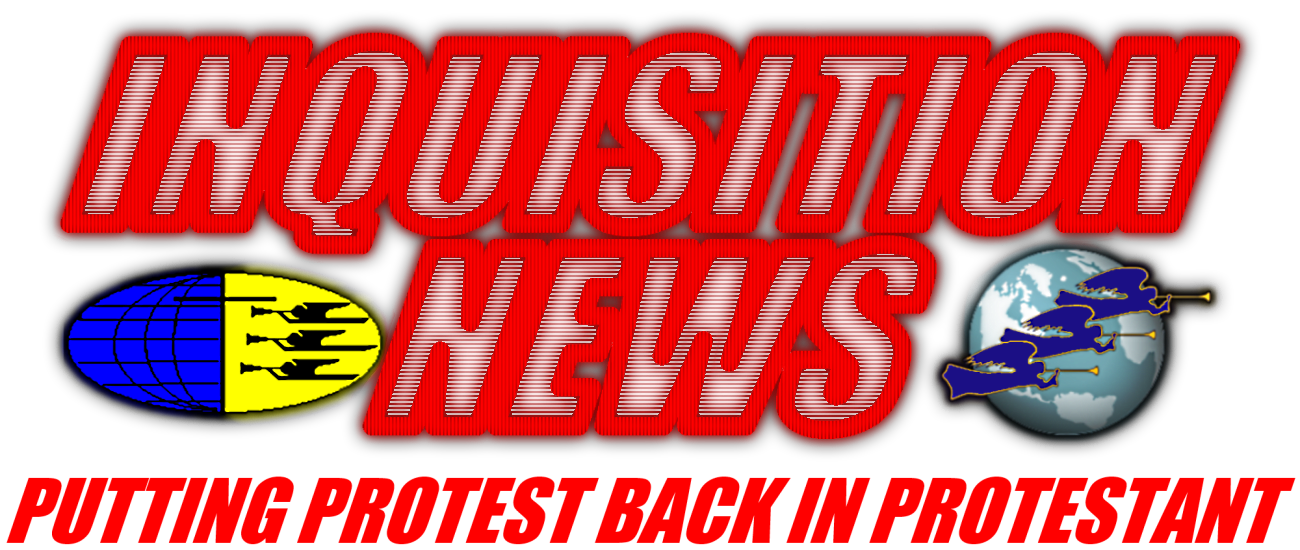Redistribution Of Wealth Is Theft!
See also:
Rerum Novarum
http://inquisitionnews.blogspot.com/p/rerum-novarum.html
Centesimus Annus
http://inquisitionnews.blogspot.com/p/centesimus-annus.html
Caritas In Veritate
http://inquisitionnews.blogspot.com/p/caritas-in-veritate_05.html
The Popes Plans On Organizing Political, Economic And Religious Activities Worldwide
http://www.scribd.com/doc/22319643/Pope-Plans
Here's my rule of thumb: If His Popey Rapeyness likes it, I hate it. Celibacy, forced childbirth, child rape, banning condoms, blaming everything bad on an invisible sky wizard ... hate it, hate it, hate it.
But the worst thing the freakazoid motherfuckers do is attract support from leftists by pretending to give a flying fuck about the non-rich. Because if you're gay or want an abortion or need birth control or want your local priest to stop raping you, tough shit - the Catholic Church hates you and will attack and abuse you.
Don't be fooled. The Vatican is the single richest entity on the planet. It got that way by stripping poor people of their last dime with promises of heaven and threats of hell. It supports the most viciously anti-democratic, un-American repug officials in this country. It loves Rick Santorum. It hates Bernie Sanders. It pours millions into campaigns of hatred against women and gays. It is the epitome of authoritarian male privilege. It invented religious war.
Reject it. Reject it and all its works.
With protesters taking to the streets around the world to fight for better income equality and economic opportunities for the poor and middle classes, the Vatican called Monday for an overhaul of world's financial systems and a return to a global economy based on ethical behavior and "achievement of a universal common good," the AP reports. While the Vatican has, in the past, criticized uncontrolled capitalism, the new call goes further, decrying "an economic liberalism that spurns all rules and controls."The call for greater control and equality in financial markets comes at a time when Republican presidential candidates - many of whom tout their religious credentials on the campaign trail - have called for the repeal of the Dodd-Frank financial reform law aimed at preventing a crisis similar to that of 2008, and as Republicans in both Congress and on the campaign trail continue to back budget cuts that would eviscerate programs that help the poor. At the same time, protesters spurred by the original Occupy Wall Street demonstrations have brought increasing attention rising income inequality, corporate greed, and tax breaks for corporations and the wealthiest Americans.
The Vatican release is a clear sign that it supports the message of the Occupy Wall Street protests, Vincent J. Miller, the Gudorf Chair in Catholic Theology and Culture at the University of Dayton, said in a press release:
"While conservative leaders and several presidential candidates want to eviscerate financial reform, the Vatican has sent a powerful message that prudent regulation of our financial system is a moral priority. I expect Catholic neo-cons who usually present themselves as the defenders of orthodoxy will ignore or scramble to defuse this timely teaching. It's clear the Vatican stands with the Occupy Wall Street protesters and others struggling to return ethics and good governance to a financial sector grown out of control after 30 years of deregulation."
This isn't the first time faith leaders have spoken out against so-called religious conservatives who have prioritized tax cuts for the wealthy and repealing financial regulations over helping low-income Americans. A group of Catholic bishops signed a letter to House Speaker John Boehner (R-OH) and Budget Committee Chair Paul Ryan (R-WI) - both practicing Catholics - during the debt limit fight, denouncing budget cuts that disproportionately hurt the poor. Other religious leaders made similar calls, with Rev. Jim Wallis telling Republicans, "We did not get into fiscal trouble because of poor people. ... The poor didn't cause this. Let's not make them pay for it."UpdateFather Thomas Reese, a senior fellow at the Woodstock Theological Center at Georgetown University, wrote in a column today that the Vatican's statement is "to the left of" every member of Congress and perhaps even the Occupy Wall Street protesters.
No, Mr. Reese: the vatican's statement is not even close to being to the left of members of Congress like Bernie Sanders, Peter DeFazio, Raul Grijalva or Al Franken.As for the Occupy Wall Street protesters, I am begging them to do something - non-violent but atheistic - to force the vatican to condemn them.
